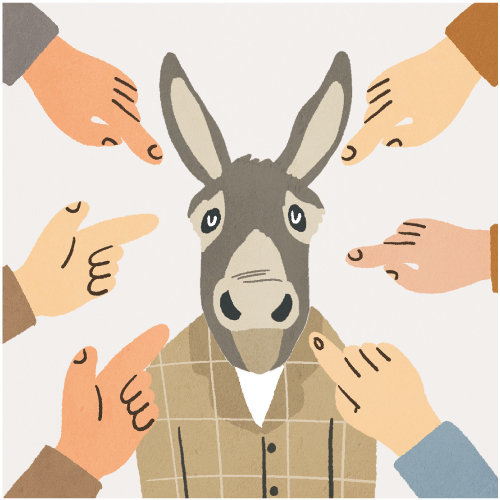Remember donkey
Remember donkey
Posted December. 09, 2020 07:29,
Updated December. 09, 2020 07:29

Literature is sometimes the record of oppression against the socially vulnerable. “Animals Sick with the Plague” by Jean de La Fontaine who is often described as French Aesop is the record of such oppression. In particular, it can be viewed as the record or allegory of oppression taking place at the moment where infectious disease is widely spreading.
Animals are dying of a plague. They think it is a punishment from heaven. It is a wrong interpretation but it requires someone as a scapegoat. This is why the lion, the king of the animals, convenes a meeting. The lion says the animal that committed the worst crime should be sacrificed as an offering to contain the plague and starts with its own confession that it ate an innocent sheep, as well as a shepherd, offering itself to sacrifice. However, the fox says the king did nothing wrong and flatters the lion that it was the shepherd’s fault to try to dominate silly sheep or other animals. Other animals all agreed with the fox clapping their hands. All predators, including the tiger, bear, wild boar, fox, and wolf, come up with similar excuses.
At last, it was the donkey’s turn. The donkey said it ate grass in a monastery because it was hungry. “What? You ate somebody else’s grass?”, said the wolf. The wolf said the donkey committed the worst crime of violating a sacred private property with others agreeing with the wolf. This is how the donkey was decided to be sacrificed as an offering, driven by others’ hypocrisy and self-deception.
“The court will decide whether you are innocent or guilty based on how strong you are,” The story ends. The fable seems to cynically describe a society, but human history has not been free from the collective violence committed by those in power to make scapegoats of the socially vulnerable. As French scholar René Girard said, literature sometimes functions as the text of persecution by reminding us of and moaning the donkey and other scapegoats.







